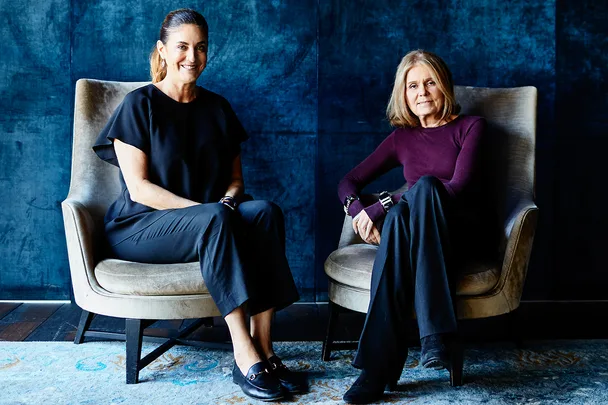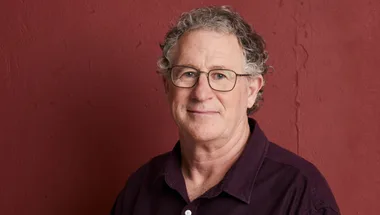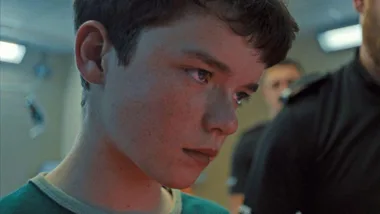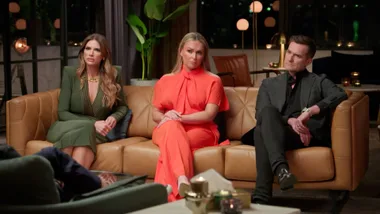Gloria Steinem has spent five decades on the frontline of the women’s rights movement. The feminist writer, activist and icon sits down with marie claire‘s Jackie Frank to discuss her early struggles, battle for equality and hopes for the future.
Jackie: Let’s go back to your childhood. You grew up in Toledo, Ohio and your family was often on the move. Your recent book is called ‘My life On the Road’. Do you think travel is in your blood?
Gloria: I grew up in a house trailer until I was about 10 because my father was a gypsy [he sold antiques]. We were in the same place in the summer because he had a little resort and the rest the year we would travel the country. So it’s true that what we see in our childhood feels familiar and normal. I did rebel against it, though, because I wanted to go to school like the other kids.
Jackie: Your parents split up when you were 10. Your mother was ill and you had to care for her much of the time.
Gloria: Sometimes she was okay and wonderful – book-loving, funny, loving – but sometimes she was just so depressed and anxious and hooked on tranquillisers that she just couldn’t function.
Jackie: You’ve come to feel the diagnosis of a mental illness was wrong. What do you think she was suffering from?
Gloria: In hindsight, I realised that before I was born she had given up being a pioneer newspaper reporter and editor, she had given up her friends, where she lived. She had given up everything she loved because she couldn’t make it work with my wonderful, kind but so irresponsible father. So she had what was then called a nervous breakdown and she was hospitalised for a while. She had followed my father into this obscure rural place in Michigan and started a summer resort. She just didn’t have a journey of her own and I think that was the problem.
Jackie: You’ve said that in your college years in the 1950s, you confused growing up with settling down. You thought you wanted to get a home, get a husband. How long did that feeling last?
Gloria: Nobody told me there was an alternative, unless you were kind of crazy and became a spinster or something. So I assumed I was going to do that, settle down, but just not right now. I kept putting it off.
Jackie: Instead, you started out as a freelance writer in the 1960s, working for magazines like Esquire.
Gloria: Yeah. My first big serious article was about the contraceptive pill because it had just been developed.
Jackie: You also famously went undercover as a playboy bunny in a Playboy club and wrote about it [‘A Bunny’s Tale’]. That was quite controversial at the time, wasn’t it?
Gloria: I don’t know if it was controversial. They did threaten to sue me, because they were trying to present it as glamorous and well-paid and so on. Of course, it wasn’t any of those things. I think what annoyed Hugh Hefner the most was that it was exposed as not glamorous.
Jackie: There are women today who say things like Playboy are actually empowering for them, that they have used their sexuality for their own gains. What do you say to that?
Gloria: I hope they are getting a hell of a lot of money! Ha ha. Because the philosophy of Playboy is that a woman must never win. That’s Hugh Hefner’s philosophy. Not in fiction. Not in articles. A woman must never win and when the [women’s] movement was first getting under way, he wrote a memo saying these women are our natural enemies; we have to get them, and so on.
Jackie: Thinking about pornography, and women who have made money out of pornography… Your view?
Gloria: It depends whether it’s pornography or not. [The Greek word] porne means female slave [or prostitute] and ‘pornography’ means writing about female slavery. So it’s about a profound power difference. Erotica comes from eros, which means love, mutual pleasure, free choice and it’s profoundly different.
Jackie: For kids today, their first experience or interaction with sex is often seeing what’s presented on the internet.
Gloria: They are looking at pornography, not erotica, so they are made to believe sexuality is about domination, humiliation, pain, inequality, and that’s tragic. Really tragic.
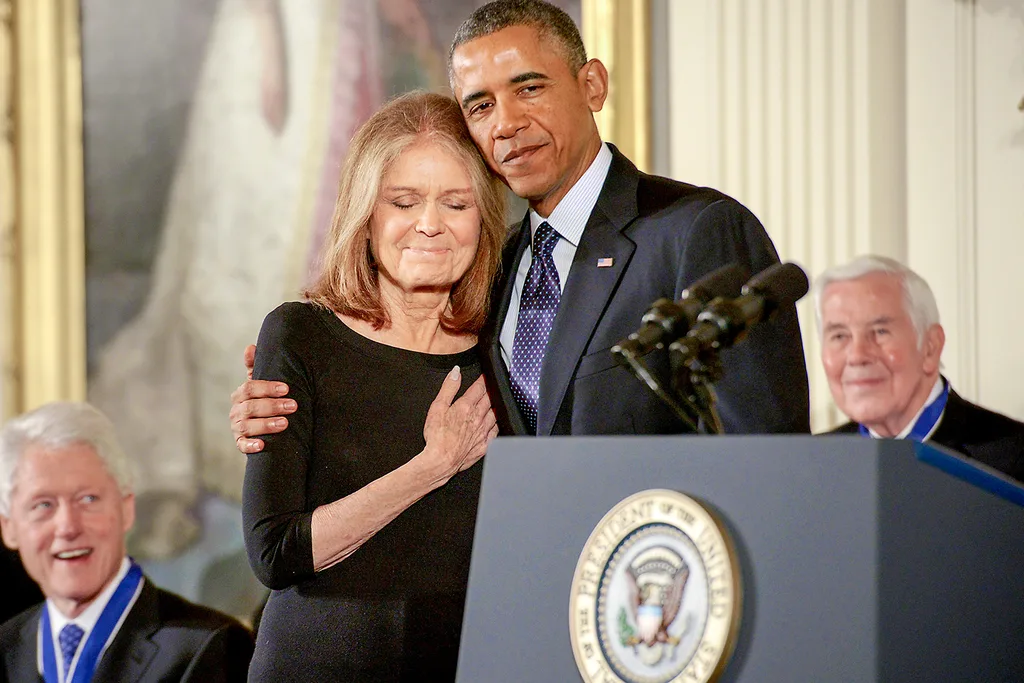
Jackie: You co-founded Ms magazine in the early ‘70s. What made you want to launch your own title?
Gloria: It had become clear to me that women’s magazines could sneak in a [serious] article or two but basically you had to provide complimentary copy for the ads. So women had lots of fashion, lots of beauty, and you couldn’t be honest about it either. You couldn’t talk about sweat shops or which cosmetics were really bad for your skin, and so on.
We just wanted to have a women’s magazine that we read and that could be factual and could talk about the real changes that were coming in for the women’s movement.
Jackie: One of the big issues early on in women’s activism was abortion. You had an abortion at 22 when it was still illegal. Abortion is still a contentious issue?
Gloria: In the States and here too in Australia, there is still profound opposition. It’s not yet understood to be a human right; that reproductive freedom, the ability to make decisions over your own body, is a fundamental human right.
Jackie: You dedicated your latest book to the doctor who gave you that abortion. You realised the risk he took. He made you promise to do what you wanted with your life. How would life have been different if he hadn’t helped you?
Gloria: If I had been forced at that point to give birth to someone else, I don’t know that I would have given birth to myself.
Jackie: That’s a beautiful phrase, ‘I wouldn’t have given birth to myself’.
Gloria: We have a right to that. We are not only wombs; we are brains and hearts and unique people as well.
Jackie: You turned 82 this year. Amazing. You’ve never been shy about your age. Why?
Gloria: When I was in my late 30s, I put my age down by two years. My sister had changed hers and I was going out with a man who had had been married to a movie star and he said, no woman tells her real age. So there was about a year when I changed my age by two years and I felt terrible.
So when I turned 40, I became publicly 40. And some reporter kindly said, you don’t look 40. I said, ‘This is what 40 looks like. We’ve been lying so long, who would know?’ That caught on and so I began to say it every decade.
Jackie: Do you think you’ve actually blossomed with age?
Gloria: It has meant different things to me. When I turned 50, it was hard because it was like the end of this central part of life. The feminine role, even if you’re rebelling against it, whether you’re obeying or not, is a big force in your life. After 50, it’s sort of gone. But by the time I was 60, I discovered this is great! This is like freedom!
And 70 was great, too. Eighty, of course, is about mortality. It’s not about roles any more. It’s about how much time is left.
Jackie: So you felt liberated from the demands of gender when you turned 60?
Gloria: I don’t know about your life, but for a lot of women, it was when we were little girls, 8 or 9 or 10, that we were our true selves. We were climbing trees and saying I know what I want, I know what I think. Then around 11 and 12 or 13, a bit more of the ‘feminine prison’ comes down on you and it’s profound. It really doesn’t let up until your reproductive years – whether or not you have children – are over.
Carolyn Heilbrun wrote a book called Writing a Woman’s Life, and she says that after 50, women become their true selves again, as much as possible. You go back to being the person you were at 8 or 9 or 10, only now you’re grown up. You have own your own apartment, hopefully have a little money. So it’s free. It’s exciting.
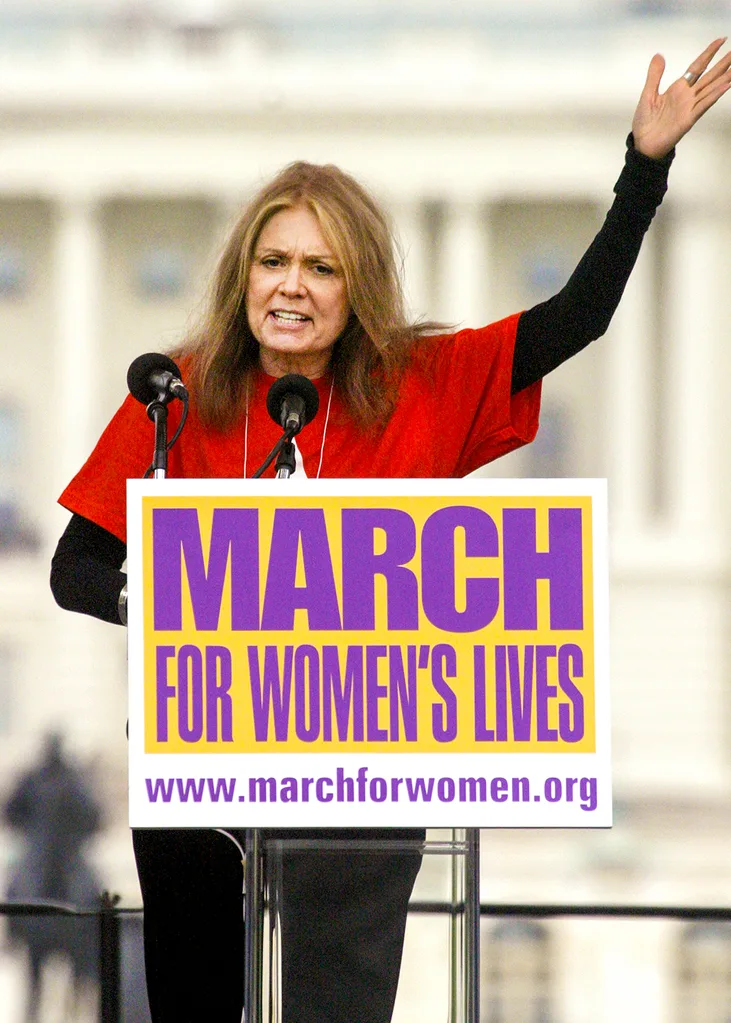
Jackie: When you grew up, Western women were under the pressure to stay home, to be happy housewives and so on. What are the pressures facing them today?
Gloria: Unfortunately, it’s the pressure to do it all. Society first says, no, you can’t be an editor, a lawyer, engineer, carpenter, whatever it is you want to be, and then they say, okay, but only providing you keep on doing everything you did before. Don’t disturb society.
And that is sort of where we are, although there has been a lot of advance in some countries, with men raising children and being real parents, and understanding that kids are not born at 6.
Jackie: It’s the big thing that everyone always talks about – women end up having two jobs, the paid and the unpaid. We waged such a big fight but did we sell ourselves short on that?
Gloria: We have to just stop doing it, to the extent that it’s possible to stop doing it.
If the man we live with doesn’t do the laundry, then the laundry doesn’t get done. It’s very simple.
I’ve never forgotten how this wonderful Asian woman put it. We were having this discussion in the middle of some huge lecture and I thought maybe we were offending her, because she looked kind of traditional. Somebody had been saying that her husband didn’t even pick up his underwear off the floor, much less help in other ways. So this other woman got up and said, when my husband leaves his underwear like that, I find it quite useful to nail it to the floor.
Jackie: It’s the question I get asked all the time – how to find that work/life balance.
Gloria: In terms of my country, we are one of the few modern democracies that doesn’t have a national system of childcare. Sheryl Sandberg, for instance, has made very clear in her book [Lean In] that if you want to have children, the most important career decision you will ever make is who you marry or you have children with. That they will be an equal parent.
So the first thing is to understand that nobody can do it all. And we have a right to get mad and not do it all and say forget it. And to figure out how we can share and solve [the pressures].
Jackie: Talking about equality, what’s the secret to a successful partnership or marriage?
Gloria: I’m not here to impose xx47.23 on other people. But it’s mutuality – mutual respect, listening. That each person listens as much as talks.
Jackie: Someone once said to me that when you are looking for a partner, it’s actually the qualities you want to have yourself that attract you.
Gloria: When I was writing Revolution from Within, I did a chapter called Romance V Love and at the end I said, make a list of the qualities you want in a partner. Then the next page said, that’s what you need to develop in yourself.
There’s a difference between romance and love. Romance is a function of a role-polarised society, in which men are deprived of feminine qualities and women are deprived of masculine. So they are looking for the rest of themselves but, of course, nobody can be the rest of you. So it’s doomed.
Love is about wanting what’s best for the other person.
Jackie: You’re a believer in making ‘creative trouble’. Where should women be lighting fires?
Gloria: Well, there are no ‘shoulds’, really.
It isn’t so much what we should do. It’s doing whatever we can do. So it may just be as simple as saying, ‘Pick it up yourself’. It maybe as complicated as saying, ‘publish our salaries, and the salaries have to be the same for everybody’. They have to be attached to the job, not the person.
It depends on the situation but it’s about saying what is equal and sensible and proposing it. Even if it doesn’t work, it’s way better to try, otherwise you’ll be haunted. The worst punishment is the ‘what if’? What if I had tried?
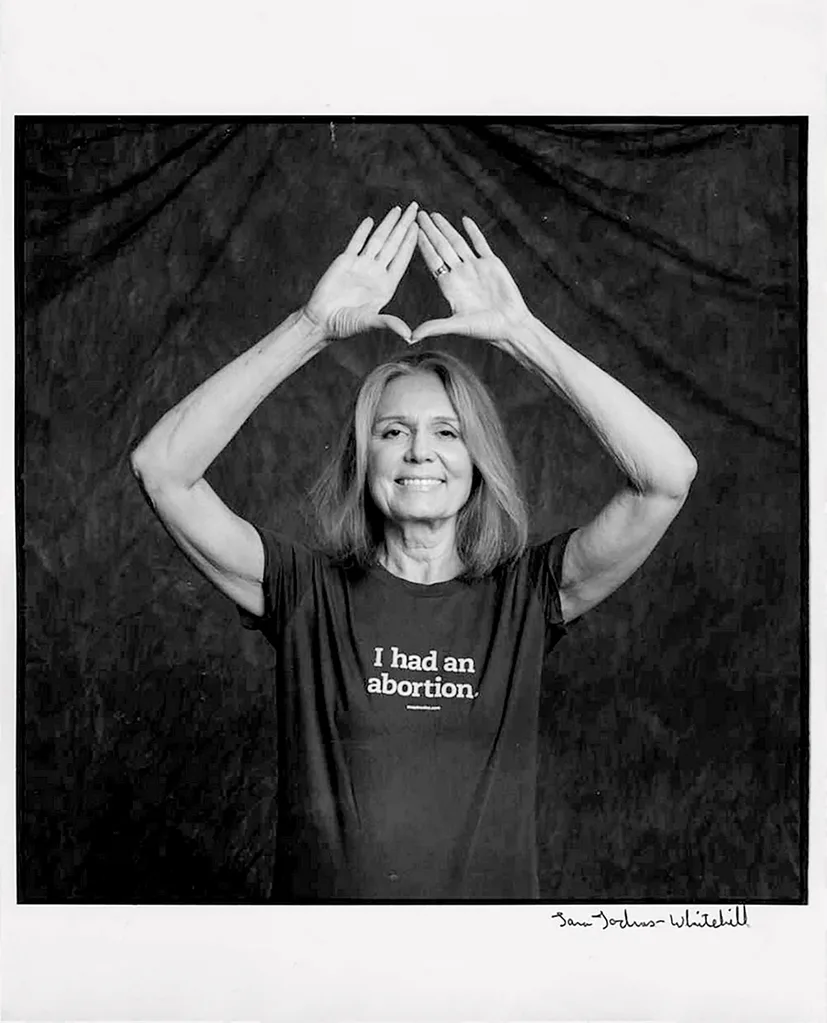
Jackie: You’re not a great fan of online activism. Why not?
Gloria: No, I am fan. I just wanted to say that sometimes pressing ‘send’ is not activism. It’s passing out information.
I, too, am subject to the idea that if I just send on the piece of information that is startling and important, I changed something. Which I haven’t. It still depends on action.
Jackie: Is that why you are still out there? Your travel schedule is incredible.
Gloria: The other truth is that while I love books, the web and the democracy of the web, there is still something that happens when we are together, as we are now, that doesn’t happen from a book or screen. We can only empathise with each other when we are actually physically together. I believe that’s part of the reason people can be so cruel on the web.
Jackie: Your book is a wonderful reminder about the whole course of feminism in the US but you include very little about your personal life – your relationships with interesting and powerful men like Mort Zuckerman, your breast cancer diagnosis [in 1986], the death of your husband three years after you married in your 60s, and so on. Why did you hold back on those things?
Gloria: Because it’s a road book. It’s not a memoir. There are many very personal stories but it is not an autobiography.
Jackie: Here you are in your 80s, still an activist. Do you find it frustrating that women are still having to fight?
Gloria: Of course, but it was ridiculously naïve of us in the beginning to think, ‘Oh well, this so unjust! Surely if we just explain it to people…’ [laughs]
Billions of dollars were being made out of unequal pay and even now, much of the productive work in a country is not even counted – all the care-giving, raising of children, taking care of invalids. We could attribute a value to that and make it part of the economy. We haven’t done that yet.
FAST FIVE
What do you never travel without?
Moisturiser.
What are the qualities you admire in people?
Authenticity. Humour. Turns out that laughter is the only free emotion. The only emotion you can’t compel. It’s like a little orgasm of the mind… And kindness.
Favourite place in the world?
My nest in New York.
What would be your last meal?
Ice cream.
What would you say to your 17-year-old self now?
Everything is going to be all right.
